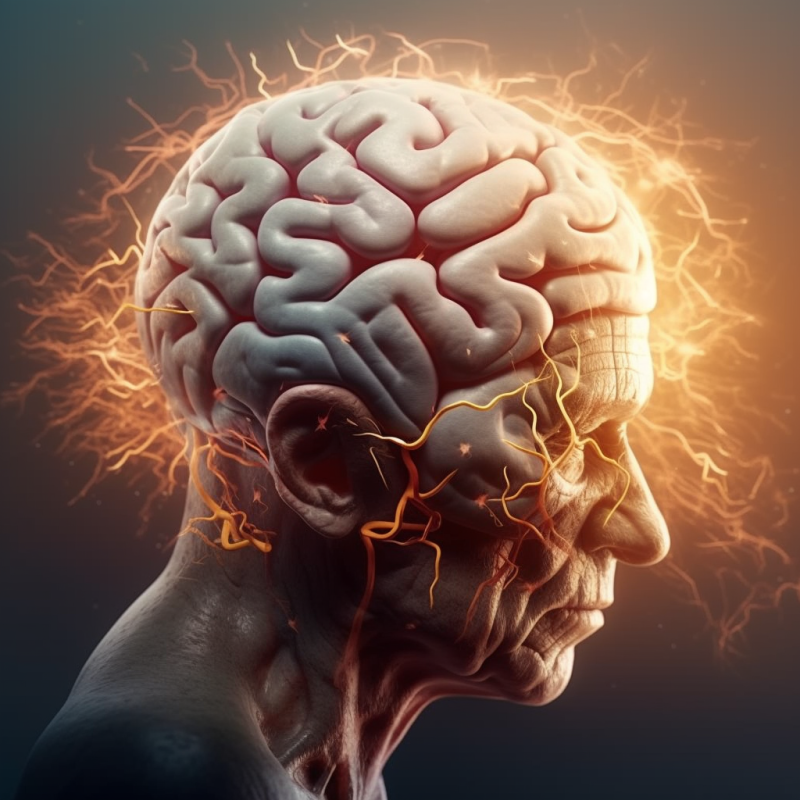Alzheimer's Disease

What is Alzheimer's disease?
Alzheimer's disease is a progressive neurodegenerative disorder that affects memory, thinking, and behavior. It is the most common cause of dementia, a general term for a decline in cognitive ability severe enough to interfere with daily life. Alzheimer's disease primarily affects older adults, but early-onset Alzheimer's can also occur in people in their 40s or 50s.
Who's at risk for Alzheimer's disease?
The primary risk factor for Alzheimer's disease is age, with the majority of cases occurring in individuals over the age of 65. Other risk factors include a family history of Alzheimer's, genetics, history of head injuries, cardiovascular disease, and lifestyle factors such as poor diet, lack of physical activity, and social isolation.
What causes Alzheimer's disease?
The exact cause of Alzheimer's disease is not fully understood. However, researchers believe that a combination of genetic, environmental, and lifestyle factors contributes to the development of the disease. At the cellular level, Alzheimer's is characterized by the buildup of abnormal protein deposits called amyloid plaques and tau tangles in the brain, which disrupt communication between brain cells and eventually lead to cell death.
How does Alzheimer's disease start?
Alzheimer's disease starts with mild memory loss and difficulty concentrating. Over time, these cognitive changes become more severe, and the person may experience difficulty with language, decision-making, and the ability to perform everyday tasks.
What are the symptoms of Alzheimer's disease?
The symptoms of Alzheimer's disease typically develop slowly and worsen over time. Common symptoms include:
- Memory loss that disrupts daily life
- Difficulty planning, solving problems, or concentrating
- Trouble completing familiar tasks
- Confusion about time or place
- Difficulty understanding visual images or spatial relationships
- Problems with speaking or writing
- Misplacing things and inability to retrace steps
- Changes in mood, personality, or behavior
How is Alzheimer's disease diagnosed?
There is no single test to diagnose Alzheimer's disease. A diagnosis is typically made through a comprehensive evaluation, including a review of medical history, physical and neurological examinations, cognitive tests, and sometimes brain imaging studies.
How can Alzheimer's disease be treated?
While there is currently no cure for Alzheimer's disease, there are medications and non-pharmacological interventions available to help manage symptoms and improve the quality of life for those affected. Some common treatment options include:
- Cholinesterase inhibitors and memantine, medications that help maintain cognitive function
- Antidepressants, antipsychotics, or anti-anxiety medications to manage mood and behavior changes
- Occupational and physical therapy to maintain mobility and independence
- Cognitive stimulation therapy to engage the mind and support cognitive function
- Support from family, caregivers, and healthcare professionals
What complications may occur with Alzheimer's disease?
As Alzheimer's disease progresses, it can lead to complications such as:
- Loss of ability to communicate, perform self-care tasks, and recognize loved ones
- Increased vulnerability to infections, such as pneumonia
- Falls and injuries due to impaired mobility and coordination
- Malnutrition and dehydration
- Severe behavioral and psychological symptoms
How can I prevent Alzheimer's disease?
While there is no guaranteed way to prevent Alzheimer's disease, certain lifestyle changes may help reduce the risk or delay the onset of symptoms. These include:
- Engaging in regular physical activity
- Eating a heart-healthy diet, such as the Mediterranean or DASH diet
- Staying mentally and socially active
- Getting adequate sleep and managing stress
- Regularly monitoring and managing chronic health conditions, such as diabetes and high blood pressure
Long-term management of Alzheimer's disease
Long-term management of Alzheimer's disease involves a combination of medical treatments, lifestyle adjustments, and support from healthcare professionals, family, and caregivers. It is essential to establish a care plan that addresses the specific needs and preferences of the individual with Alzheimer's, as the disease progresses and their abilities change.
What is recent research saying about Alzheimer's disease?
Recent research on Alzheimer's disease has focused on understanding the underlying biological mechanisms, identifying new risk factors, and developing novel therapies. This includes investigating the role of inflammation, the immune system, and the gut microbiome in Alzheimer's disease. Other research is exploring new diagnostic tools, such as blood tests and advanced imaging techniques, to detect Alzheimer's at an earlier stage.
Where can I go for more information on Alzheimer's disease?
For more information on Alzheimer's disease, you can consult reputable sources such as the Alzheimer's Association, the National Institute on Aging (NIA), and the World Health Organization (WHO). These organizations provide accurate, up-to-date information on Alzheimer's disease, its causes, treatments, and ongoing research.

